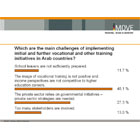"Education and qualification are the key to a living a self-reliant life," commented federal minister Professor Dr. Annette Schavan in her opening remarks to the German-Arab Education and Vocational Training Forum and stressed the importance of education and training in connection with the Arab Spring.
Nearly 250 people from Arab countries and Germany attended the 3rd German-Arab Education and Vocational Training Forum on 6 and 7 October in Berlin. The forum was organised by iMOVE in cooperation with Ghorfa, the German-Arab Chamber of Commerce and Industry.
3rd German-Arab Education and Vocational Training Forum
During the two day forum, speakers from the Arab world and Germany reported on the current state of affairs as well as new projects and trends in the education and vocational training sector.
The climate amongst the attendees of the 3rd German-Arab Education and Vocational Training Forum was quite positive. The great deal of positive feedback shows that visitors took full advantage of the forum to find out about the latest developments and to meet and exchange ideas with other stakeholders in this field in a purposeful way.
During the Education and Vocational Training Forum, a meeting took place between the Ambassador of the Sultanate of Oman, her Excellency Dr. Zainab Ali Al-Qasmiah, representatives from the Federal Ministry for Vocational Education and Training (BIBB), representatives from the Federal Ministry of Education and Research (BMFB) and representatives from iMOVE. Potential partnerships in the field of vocational training were the focus of the meeting.
The climate amongst the attendees of the 3rd German-Arab Education and Vocational Training Forum was quite positive. The great deal of positive feedback shows that visitors took full advantage of the forum to find out about the latest developments and to meet and exchange ideas with other stakeholders in this field in a purposeful way.
During the Education and Vocational Training Forum, a meeting took place between the Ambassador of the Sultanate of Oman, her Excellency Dr. Zainab Ali Al-Qasmiah, representatives from the Federal Ministry for Vocational Education and Training (BIBB), representatives from the Federal Ministry of Education and Research (BMFB) and representatives from iMOVE. Potential partnerships in the field of vocational training were the focus of the meeting.
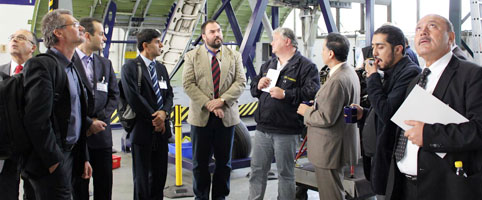
Visiting Programme: TRAINICO - Vocational Training for the Aviation Industry
Prior to the official opening of the forum, some of the attendees took part in a visit to TRAINICO.
TRAINICO gave visitors a tour of the training centre in which for the most part unemployed individuals are retrained. Upon completion of this special training course, the re-trainees have a good chance of successfully obtaining employment in the aviation industry.
The visitors evinced great interest in the training centre. Their primary questions centred around the recruitment of the trainees and the financing of the training programmes offered.
TRAINICO gave visitors a tour of the training centre in which for the most part unemployed individuals are retrained. Upon completion of this special training course, the re-trainees have a good chance of successfully obtaining employment in the aviation industry.
The visitors evinced great interest in the training centre. Their primary questions centred around the recruitment of the trainees and the financing of the training programmes offered.
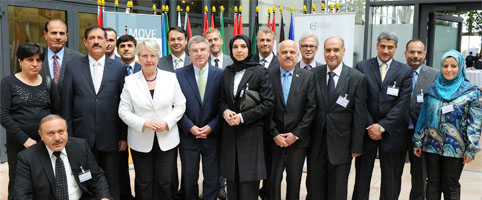
Opening Ceremony
Following the welcome address by Markus Milwa, Acting Head of iMOVE, Dr. Thomas Bach, President of Ghorfa, emphasized the importance and necessity of education and vocational training opportunities for a constantly growing and very young population in Arab countries. The upheavals which have occurred in some of the countries in the region dramatically underscore this point. German companies can and must play an important supporting role in this process.
Federal Minister Professor Dr. Annette Schavan, patron of the Forum, stressed the great importance of education and training in connection with the Arab Spring. One cannot speak about education without ending up speaking about freedom and vice-versa. Education and qualification are the key to living a self-reliant life. For the 3rd German-Arab Education and Vocational Training Forum, she hoped for new ideas for cooperation in the field of education and vocational training and called for even greater internationalisation of the education and research system in Germany.
His Excellency, Professor Dr. med. Ossama bin Abdul Majed Shobokshi, Ambassador of the Kingdom of Saudi-Arabia and Doyen of the Arab Diplomatic Corps, gave examples from some Arab countries in cooperation with Germany in the domain of education and vocational training and highlighted the great importance education and vocational training holds in his country with figures: 26 percent of the country's budget is spent on education and training.
Professor Dr. Friedrich Hubert Esser, President of BIBB, pointed out that Germany is faced with great challenges which necessitate ongoing systematic refinement of the vocational training system. Public-private partnerships (PPP) have been established here which are sure to be expedient and effective in the scope of international collaboration as well. However, solutions cannot be transposed to Arab countries on a 1:1 basis. In this regard, one must reply on cooperative partnerships which support Arab partners in developing and implementing tailored approaches.
Federal Minister Professor Dr. Annette Schavan, patron of the Forum, stressed the great importance of education and training in connection with the Arab Spring. One cannot speak about education without ending up speaking about freedom and vice-versa. Education and qualification are the key to living a self-reliant life. For the 3rd German-Arab Education and Vocational Training Forum, she hoped for new ideas for cooperation in the field of education and vocational training and called for even greater internationalisation of the education and research system in Germany.
His Excellency, Professor Dr. med. Ossama bin Abdul Majed Shobokshi, Ambassador of the Kingdom of Saudi-Arabia and Doyen of the Arab Diplomatic Corps, gave examples from some Arab countries in cooperation with Germany in the domain of education and vocational training and highlighted the great importance education and vocational training holds in his country with figures: 26 percent of the country's budget is spent on education and training.
Professor Dr. Friedrich Hubert Esser, President of BIBB, pointed out that Germany is faced with great challenges which necessitate ongoing systematic refinement of the vocational training system. Public-private partnerships (PPP) have been established here which are sure to be expedient and effective in the scope of international collaboration as well. However, solutions cannot be transposed to Arab countries on a 1:1 basis. In this regard, one must reply on cooperative partnerships which support Arab partners in developing and implementing tailored approaches.
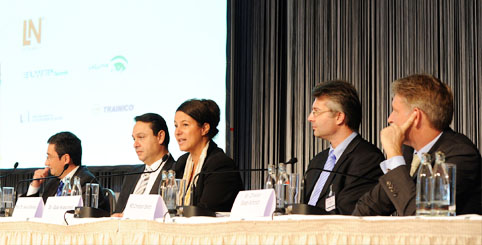
Session 1: Initiatives in Vocational and Further Training in the Arab World: Growing Opportunities for Cooperation
Professor Dr. Ashraf Mansour, Founding Member and Chairman of the Board of Trustees of the German University of Cairo, emphasized in his keynote address the importance of developing human capital for sustainable economic growth and social stability in the Arab world. Vocational training plays a crucial role in this regard since it makes it possible to enhance the employability of the population and the productivity of national economies.
By the year 2020, an additional 80 million jobs must be created in the Arab world in order to guarantee social security and stability. This is a challenge not only for Arab countries but also for Europe which cannot remain unaffected by the developments in the neighbouring region.
Christian Stertz, Head of the Division for EU Education Programmes; International Cooperation in Education at BMBF, spoke about the motivation of all those involved in the dual vocational education and in Germany. He illustrated the sustained attractiveness of the dual system in German with current data.
Fehmi Devrim Günce, Export Manager for Knauf Gips KG, presented his company's project to open a training centre in Iraq to qualify specialists in the building trade. The centre will be financed in the scope of a public-private partnership by Knauf Gips KG and Deutsche Entwicklungsbank KfW. The programmes, already licensed by the Iraqi government and thus recognised throughout Iraq are slated to begin in 2013.
Drawing on the example of a project in Saudi Arabia, Christian Staab-Schmidt, General Manager of Lucas-Nülle Training Systems GmbH, explained how a high measure of acceptance of the facilities on the part of the trainees was achieved through the integration of the technical equipment in the development of syllabi, the architecture of the facilities and the active involvement of the vocational instructors in training in setting up a training centre.
By the year 2020, an additional 80 million jobs must be created in the Arab world in order to guarantee social security and stability. This is a challenge not only for Arab countries but also for Europe which cannot remain unaffected by the developments in the neighbouring region.
Christian Stertz, Head of the Division for EU Education Programmes; International Cooperation in Education at BMBF, spoke about the motivation of all those involved in the dual vocational education and in Germany. He illustrated the sustained attractiveness of the dual system in German with current data.
Fehmi Devrim Günce, Export Manager for Knauf Gips KG, presented his company's project to open a training centre in Iraq to qualify specialists in the building trade. The centre will be financed in the scope of a public-private partnership by Knauf Gips KG and Deutsche Entwicklungsbank KfW. The programmes, already licensed by the Iraqi government and thus recognised throughout Iraq are slated to begin in 2013.
Drawing on the example of a project in Saudi Arabia, Christian Staab-Schmidt, General Manager of Lucas-Nülle Training Systems GmbH, explained how a high measure of acceptance of the facilities on the part of the trainees was achieved through the integration of the technical equipment in the development of syllabi, the architecture of the facilities and the active involvement of the vocational instructors in training in setting up a training centre.
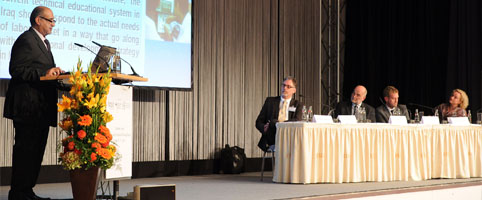
Session 2: Improving the Quality of Vocational Education and Training in Arab Countries
Professor Dr. Dieter Timmermann of the Faculty of Education at the University of Bielefeld called for clear definitions in order to be able to observe and assess the quality of vocational education and training. In this context, he referred to the generally positive impact of vocational education and training on economic growth. The quality of training and education has a far greater effect as does the quantity.
In his keynote address, Professor Dr. Mahmood Shaker Al-Mulla Khalaf, President of the Foundation of Technical Education (FTE) in Iraq discussed the great value attached to vocational education and training in Iraq (the reform of the education and training system has been one of the priorities of the new government since 2003) whilst pointing out the challenges presented by this reform. In addition, he reported on already completed German-Iraqi training projects as well as currently existing partnerships between the two countries and emphasized the urgent need by FTE for cooperation with German partners.
Markus Milwa pointed out the need for a discussion as to the viability, financing and quality of training projects. In addition, he argued that there is an urgent need for vocational education and training to polish its poor image in Arab countries. He followed by presenting eight vocational education and training success stories of German and Arab partners.
Bernd Weisschuh, Manager for Training Policy at Daimler AG, presented the Daimler Vocational Training System (DVTS) and discussed in his presentation how Daimler AG is developing and expanding training centres in the Middle East using a detailed timeline. Generally speaking, 1.5 years elapse between the enquiry and the start of training. He explicitly pointed out the fact that the most decisive factor in a successful training programme is the trainer him or herself.
Karin Siepmann from the Research Institute for Water and Waste Management at the Rheinisch-Westfälischen Technischen Hochschule (RWTH) Aachen (FiW) e.V. [Institute of Technology of North Rhine-Westphalia] presented the AQWA Academy, a new platform for training and qualification in the international water sector. The aim of the platform is to develop training networks centred around the topic of water management and implement training and qualification programmes for skilled workers and technicians in the MENA region. Blended learning qualification programmes form the core of the training concept.
In the ensuing discussion, renewed emphasis was placed on the fact that human resources are amongst the most important factors in vocational education and training. Recruitment and training of trainers present the most significant challenges in this regard.
In his keynote address, Professor Dr. Mahmood Shaker Al-Mulla Khalaf, President of the Foundation of Technical Education (FTE) in Iraq discussed the great value attached to vocational education and training in Iraq (the reform of the education and training system has been one of the priorities of the new government since 2003) whilst pointing out the challenges presented by this reform. In addition, he reported on already completed German-Iraqi training projects as well as currently existing partnerships between the two countries and emphasized the urgent need by FTE for cooperation with German partners.
Markus Milwa pointed out the need for a discussion as to the viability, financing and quality of training projects. In addition, he argued that there is an urgent need for vocational education and training to polish its poor image in Arab countries. He followed by presenting eight vocational education and training success stories of German and Arab partners.
Bernd Weisschuh, Manager for Training Policy at Daimler AG, presented the Daimler Vocational Training System (DVTS) and discussed in his presentation how Daimler AG is developing and expanding training centres in the Middle East using a detailed timeline. Generally speaking, 1.5 years elapse between the enquiry and the start of training. He explicitly pointed out the fact that the most decisive factor in a successful training programme is the trainer him or herself.
Karin Siepmann from the Research Institute for Water and Waste Management at the Rheinisch-Westfälischen Technischen Hochschule (RWTH) Aachen (FiW) e.V. [Institute of Technology of North Rhine-Westphalia] presented the AQWA Academy, a new platform for training and qualification in the international water sector. The aim of the platform is to develop training networks centred around the topic of water management and implement training and qualification programmes for skilled workers and technicians in the MENA region. Blended learning qualification programmes form the core of the training concept.
In the ensuing discussion, renewed emphasis was placed on the fact that human resources are amongst the most important factors in vocational education and training. Recruitment and training of trainers present the most significant challenges in this regard.
Download
Organiser
iMOVE
at the Federal Institute for Vocational Education and Training (BIBB)
Robert-Schuman-Platz 3
53175 Bonn
Germany
Phone: +49 (0)228 107-0
Fax: +49 (0)228 107-2895
Ghorfa
Arab-German Chamber of Commerce and Industry e.V.
Garnisonkirchplatz 1
10178 Berlin
Germany
Phone: +49 (0)30 278907-20
Fax: +49 (0)30 278907-49
at the Federal Institute for Vocational Education and Training (BIBB)
Robert-Schuman-Platz 3
53175 Bonn
Germany
Phone: +49 (0)228 107-0
Fax: +49 (0)228 107-2895
Ghorfa
Arab-German Chamber of Commerce and Industry e.V.
Garnisonkirchplatz 1
10178 Berlin
Germany
Phone: +49 (0)30 278907-20
Fax: +49 (0)30 278907-49
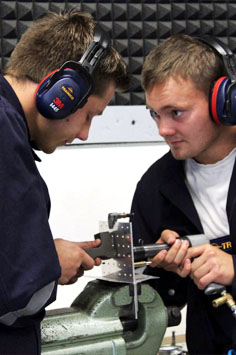
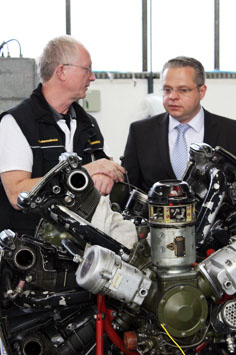
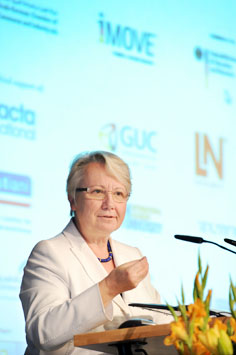
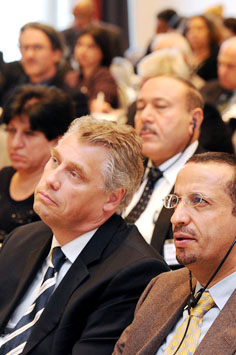
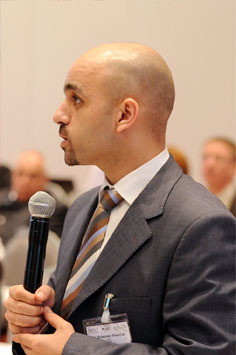
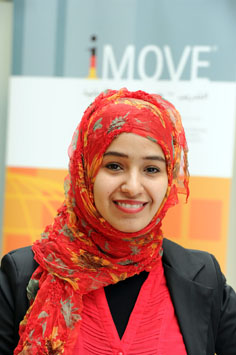
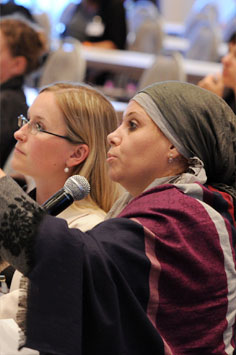
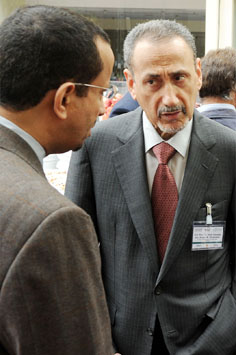
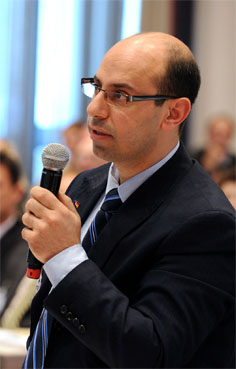
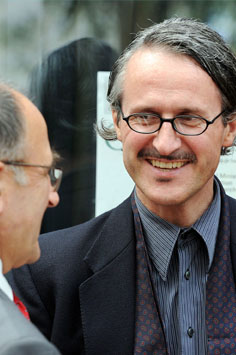
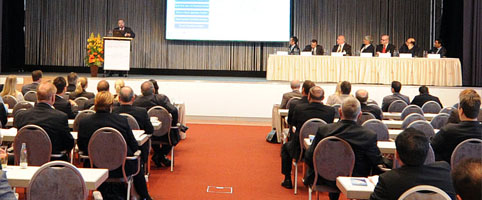
Session 3: Saudi Arabia: New Fields of Cooperation in Vocational Education and Training
After the welcome address by Dr. Winfried Heusinger, Head of the edvance Coordination Office, Dr. Ali bin Nasser Al-Ghafis and Dr. Saleh A. Alamr, Governor und Vice-Governor of Planning and Development at the Technical and Vocational Training Corporation in Saudi Arabia, commented on the current situation of technical and vocational education and training and the potential for future expansion in Saudi Arabia. It is of the utmost importance here that the gap between training and requirements of the labour market be filled.
Klaus Sodemann and Peter Wunsch from the Deutsche Gesellschaft für Internationale Zusammenarbeit (GIZ) GmbH [German Society for International Cooperation] offered an overview of GIZ International Services' activities in Saudi Arabia since the 1960's. With the Technical Trainers College, operated by GIZ under contract by the Saudi government, the country's first training institute for technical trainers meeting international standards was set up. The college is designed to improve teaching at vocational schools for future generations.
Ahmed Alhamwi, Managing Director of STT Science and Technology Transmission GbR in Munster and former lecturer and training coordinator at the Faculty of Applied Medical Sciences of King Saud University in Riad presented the dual programme in medical technology offered by KSU.
The Wacker Academy was presented by Hassan Bouhadi, Regional Sales Manager at Wacker Chemicals Middle East, United Arab Emirates. The Academy was founded in 2007 in response to the rising demand for training programmes for Wacker customers, distributors and employees and is the group's international training and competence centre. In order to better tap into the rapidly growing market for modern construction polymers in the Arab region, the Wacker Academy in Dubai was founded in 2010.
Dr. Andreas Schmitt, Managing Director of Vivantes International Medicine, gave the audience an overview of the company with its manifold different further training programmes. Vivantes also created the master plan for the University Hospital of Al Imam Academic Medical Campus in Riad and supplied the strategic consulting.
Klaus Sodemann and Peter Wunsch from the Deutsche Gesellschaft für Internationale Zusammenarbeit (GIZ) GmbH [German Society for International Cooperation] offered an overview of GIZ International Services' activities in Saudi Arabia since the 1960's. With the Technical Trainers College, operated by GIZ under contract by the Saudi government, the country's first training institute for technical trainers meeting international standards was set up. The college is designed to improve teaching at vocational schools for future generations.
Ahmed Alhamwi, Managing Director of STT Science and Technology Transmission GbR in Munster and former lecturer and training coordinator at the Faculty of Applied Medical Sciences of King Saud University in Riad presented the dual programme in medical technology offered by KSU.
The Wacker Academy was presented by Hassan Bouhadi, Regional Sales Manager at Wacker Chemicals Middle East, United Arab Emirates. The Academy was founded in 2007 in response to the rising demand for training programmes for Wacker customers, distributors and employees and is the group's international training and competence centre. In order to better tap into the rapidly growing market for modern construction polymers in the Arab region, the Wacker Academy in Dubai was founded in 2010.
Dr. Andreas Schmitt, Managing Director of Vivantes International Medicine, gave the audience an overview of the company with its manifold different further training programmes. Vivantes also created the master plan for the University Hospital of Al Imam Academic Medical Campus in Riad and supplied the strategic consulting.
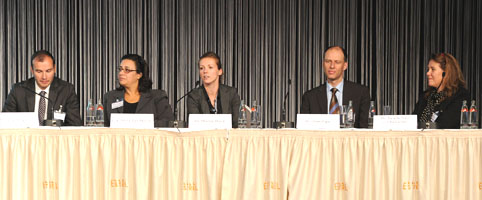
Session 4: New Developments and Potential Opportunities for Cooperation in Vocational Education and Training in North Africa
Monia Rais Mghirbi, an engineer at the Tunisian Ministry of Vocational Education and Employment presented the current training situation in Tunisia in her keynote speech. She reported on the efforts of transitional government following the revolution of 14 January with concrete measures taken to increase employment opportunities and thus create the prospect of a future for the country's young population.
The creation of new public service positions, trainee places, re-training measures and further training programmes for the unemployed are intended to counteract the high rate of unemployment in the near term. Further modernisation of the vocational education and training system is planned for the longer term. The objective here is to enhance not only the quality but also the quantity of the country's vocational education and training programmes. German organisations - solid cooperation partners in vocational education and training for over twenty years - will continue to play an important role here.
Oliver Pape, Director of Business Management, presented Lufthansa Technical Training's training programmes. Lufthansa services its aircraft in many locations around the world where it also offers training programmes. Pape also emphasized the significant benefits of vocational training for both the company and the trainees.
Goran Miladinov of Festo Didactic explained how hands-on education and further training programmes offered by German partners can contribute to employability and enhancing productivity in the MENA region. In training centres, which are often affiliated with universities, students and trainees can develop the skills they need to act autonomously in their day to day working life. Employed specialists can receive further training in the same institutions and thus increase their productivity.
Babette Stein von Kamienski from the Deutsche Entwicklungsbank KfW presented the banks current funding schemes in the field of vocational education and training in Egypt and Tunisia. Based on studies which showed a large discrepancy between the type of professional qualification and the demand for skilled personnel in these two countries, KfW is pursuing an approach designed to financially support the types of qualifications which are actually sought after by local industry.
The creation of new public service positions, trainee places, re-training measures and further training programmes for the unemployed are intended to counteract the high rate of unemployment in the near term. Further modernisation of the vocational education and training system is planned for the longer term. The objective here is to enhance not only the quality but also the quantity of the country's vocational education and training programmes. German organisations - solid cooperation partners in vocational education and training for over twenty years - will continue to play an important role here.
Oliver Pape, Director of Business Management, presented Lufthansa Technical Training's training programmes. Lufthansa services its aircraft in many locations around the world where it also offers training programmes. Pape also emphasized the significant benefits of vocational training for both the company and the trainees.
Goran Miladinov of Festo Didactic explained how hands-on education and further training programmes offered by German partners can contribute to employability and enhancing productivity in the MENA region. In training centres, which are often affiliated with universities, students and trainees can develop the skills they need to act autonomously in their day to day working life. Employed specialists can receive further training in the same institutions and thus increase their productivity.
Babette Stein von Kamienski from the Deutsche Entwicklungsbank KfW presented the banks current funding schemes in the field of vocational education and training in Egypt and Tunisia. Based on studies which showed a large discrepancy between the type of professional qualification and the demand for skilled personnel in these two countries, KfW is pursuing an approach designed to financially support the types of qualifications which are actually sought after by local industry.
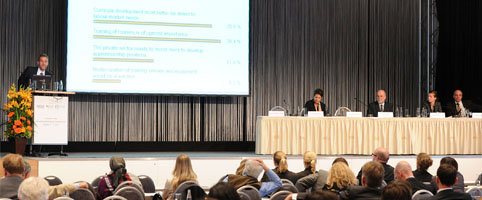
Plenary Session: Perspectives of German-Arab Cooperation in Vocational Education and Training
In his keynote speech, Professor Dr. Matthias Weiter of the Faculty of Agriculture and Horticulture at Humboldt University Berlin talked about the lessons we can learn from five decades of German-Arab cooperation in the field of vocational education and training. Action is needed at the micro, meso and macro levels in order to spur on developments.
The subsequent TED survey, in use for the first time at the Education and Vocational Training Forum led to a lively discussion amongst the audience and on the podium.
The question as to what are the greatest challenges to be overcome in order to implement education and further training measures and other education and training initiatives in Arab countries was discussed in depth.
Attendees were unanimous in their view that the image of "blue collar" jobs is rather poor and is in dire need of a makeover. This of course cannot be accomplished without a simultaneous improvement of the social security systems which afford workers more rights and security.
Two points were considered to be the most important aspects for improving education and further training: Curricula need to be better adapted to the needs of the labour market and the training of trainers must be considered a priority.
Finally, it was concluded that it is crucial for the advancement of German-Arab partnerships that both sides develop a better grasp of how to execute joint projects. Platforms such as the German-Arab Education and Vocational Training Forum offer an arena for delving further into this critical dialogue.
The subsequent TED survey, in use for the first time at the Education and Vocational Training Forum led to a lively discussion amongst the audience and on the podium.
The question as to what are the greatest challenges to be overcome in order to implement education and further training measures and other education and training initiatives in Arab countries was discussed in depth.
Attendees were unanimous in their view that the image of "blue collar" jobs is rather poor and is in dire need of a makeover. This of course cannot be accomplished without a simultaneous improvement of the social security systems which afford workers more rights and security.
Two points were considered to be the most important aspects for improving education and further training: Curricula need to be better adapted to the needs of the labour market and the training of trainers must be considered a priority.
Finally, it was concluded that it is crucial for the advancement of German-Arab partnerships that both sides develop a better grasp of how to execute joint projects. Platforms such as the German-Arab Education and Vocational Training Forum offer an arena for delving further into this critical dialogue.
Download
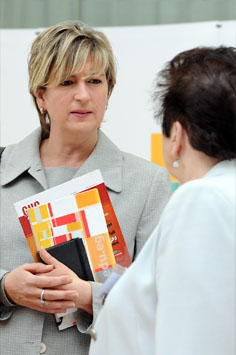
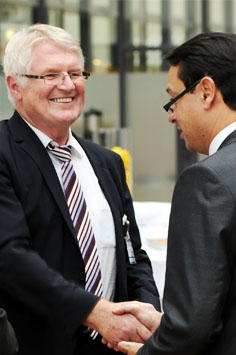
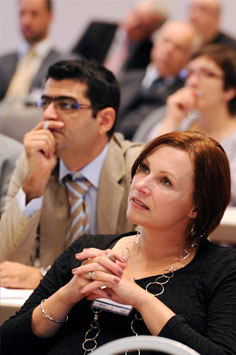
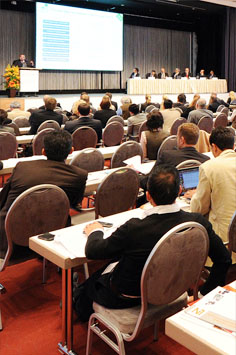
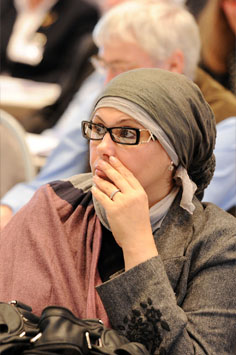
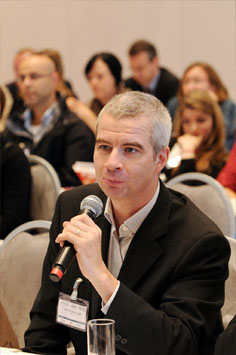
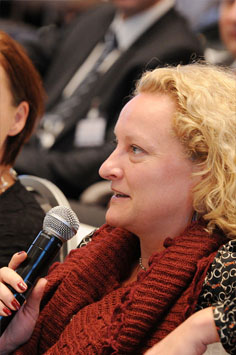
The presentations are only available in English.
Opening Ceremony
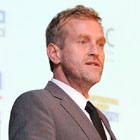
Markus Milwa
Acting Head of iMOVE, Germany
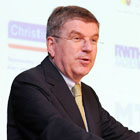
Dr. Thomas Bach
President, Ghorfa Arab-German Chamber of Commerce and Industry, Germany
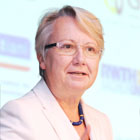
Her Excellency Professor Dr. Annette Schavan
Federal Minister of Education and Research of the Federal Republic of Germany
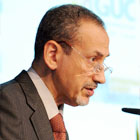
His Excellency Professor Dr. med. Ossama bin Abdul Majed Shobokshi
Ambassador of the Kingdom of Saudi Arabia and Doyen of the Arab Diplomatic Corps
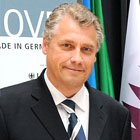
Professor Dr. Friedrich Hubert Esser
Session 1:
Vocational and Further Training Initiatives in the Arab World: Growing Opportunities
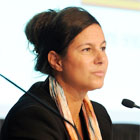
Dr. Gabi Kratochwil
General Manager, CrossCultures, Germany
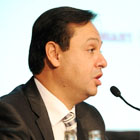
Professor Dr. Ashraf Mansour
Prime Founder and Chairman of Board of Trustees, German University Cairo (GUC), Egypt
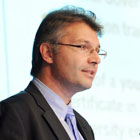
Christian Stertz
Division Head, European Union Education Programmes and International Cooperation in Education, Federal Ministry of Education and Research, Germany
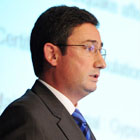
Fehmi Devrim Günce
Export Manager, Knauf Gips KG, Germany
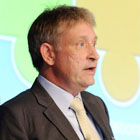
Christian Staab-Schmidt
General Manager, Lucas-Nülle Training Systems GmbH, Germany
Session 2:
Vocational Training in Arab Countries: Steady Progress in Quality
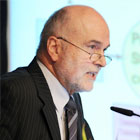
Professor Dr. Dieter Timmermann
Titular Professor of Education Economics and Planning, Faculty of Educational Science, University of Bielefeld, Germany
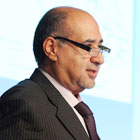
His Excellency Professor Dr. Mahmood Shaker Al-Mulla Khalaf
President, Foundation of Technical Education, Iraq
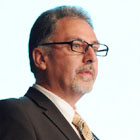
Bernd Weisschuh
Manager Vocational Training Policies, Daimler AG, Germany
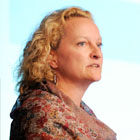
Karin Siepmann
Education and Further Training - International Cooperation, Research Institute for Water and Waste Management at Upper Rhine-Westphalia Institute of Technology (FiW), Germany
Session 3:
Saudi Arabia: New Fields of Cooperation in Vocational Education and Training
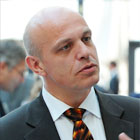
Dr. Winfried Heusinger
Head, edvance Coordination Office, Germany
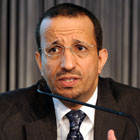
His Excellency Dr. Ali bin Nasser Al-Ghafis
Governor, Technical and Vocational Training Corporation, Saudi Arabia
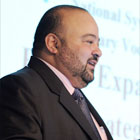
Dr. Saleh A. Alamr
Vicegovernor, Technical and Vocational Training Corporation, Saudi Arabia
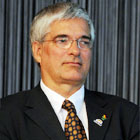
Klaus Sodemann
Corporate Development, Deutsche Gesellschaft für Internationale Zusammenarbeit (GIZ) GmbH [German Society for International Cooperation], Germany
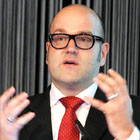
Peter Wunsch
Corporate Development, Deutsche Gesellschaft für Internationale Zusammenarbeit (GIZ) GmbH [German Society for International Cooperation], Germany
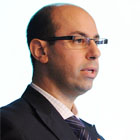
Ahmad Alhamwi
Managing Director, STT Science & Technology Transmission GbR, Germany
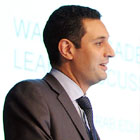
Hassan Bouhadi
Regional Sales Director Construction Polymers, Wacker Chemicals Middle East, United Arab Emirates
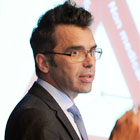
Dr. Andreas Schmitt
Chief Executive Officer (CEO), Vivantes International Medicine, Germany
Session 4:
New Developments and Potentials for Vocational Education and Training Cooperation in North Africa
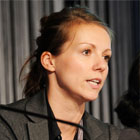
Melanie Hoppe
Deputy Head of Section Advisory Services and International Cooperation, Federal Institute for Vocational Education and Training, Germany
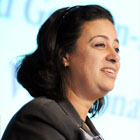
Monia Rais Mghirbi
Director General, Counselor at the Cabinet of His Excelleny Said Aidi, Ministry of Vocational Training and Employment, Tunisia
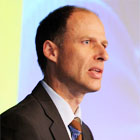
Oliver Pape
Director Business Development, Lufthansa Technical Training, Germany
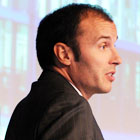
Goran Miladinov
Sales Direct Markets, Festo Didactic GmbH & Co. KG, Germany
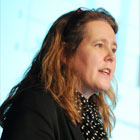
Babette Stein von Kamienski
KfW Development Bank North Africa and Near East, Germany
Plenary Session:
Perspectives of German-Arab Cooperation in the Vocational and Further Education Sector

Markus Milwa
Acting Head of iMOVE, Germany
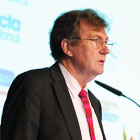
Professor Dr. Matthias Weiter
Lecturer, Chair for International Agricultural Trade and Development, Humboldt University to Berlin, Germany

Dr. Gabi Kratochwil
General Manager, CrossCultures, Germany

Professor Dr. Dieter Timmermann
Professor, Faculty of Educational Science, Bielefeld University, Germany

Dr. Winfried Heusinger
Head, edvance Coordination Office, Germany

Melanie Hoppe
Deputy Head of Section Advisory Services and International Cooperation, Federal Institute for Vocational Education and Training, Germany
